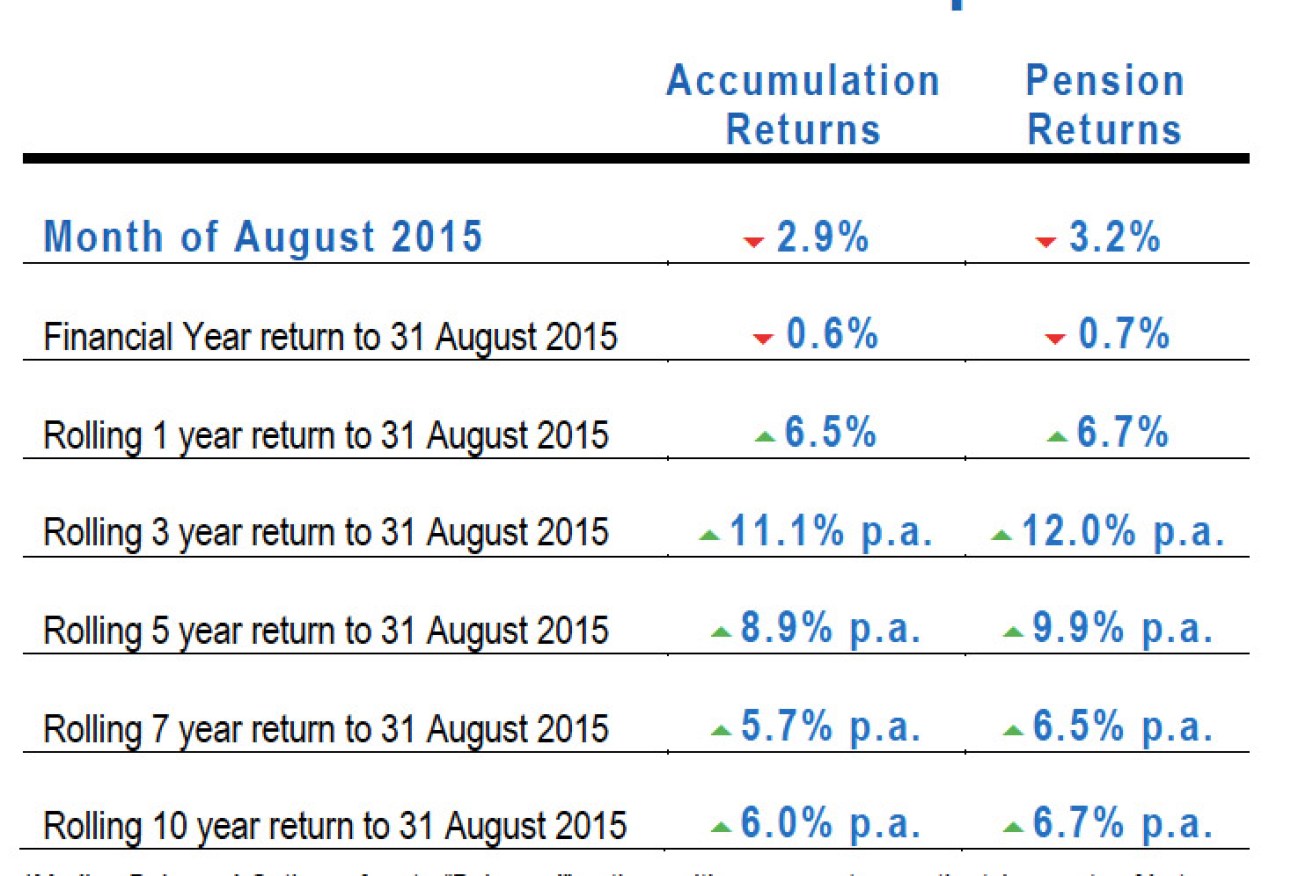Horror month for shares hits superannuation balances

Superannuation members who have invested their retirement savings in high growth options such as Australian shares and international equities copped a pasting in August as stock markets plummeted around the world.
The average loss on Australian shares options offered by super funds was 7.7 per cent during the month, while hedged international shares options lost 6.6 per cent.
It was the worst month for growth investments since the global financial crisis cut a swathe through Australians’ superannuation balances in February 2009.
• Give us renewables, super funds tell PM
• Trustees slam super changes
• Local super funds dominate global pension growth
“It’s when we experience a month like August that we see the benefits of diversification in play,” said Chant West director, Warren Chant.
“Growth funds certainly feel the effects when listed markets fall sharply.”

Pensioners were hardest hit by the August carnage.
It was also a disappointing month for members who have most of their savings invested in balanced funds, with average losses reaching 2.9 per cent.
Mr Chant said that asset diversification of balanced funds meant that the big falls in listed equities were softened by better-performing investments such as infrastructure and alternative assets.
The wash-up from August mayhem shows that most investors in balanced funds are now sitting on negative returns of around -0.6 per cent since the start of the new financial year on July 1.
Pension members hit harder than workers
One of the curious features of the August performance data is the higher losses recorded for super members in the pension phase compared to members still in the workforce.
While the average loss for the typical member of working age was 2.9 per cent, SuperRatings found that pension phase members absorbed average losses of around 3.2 per cent.
The reason for the disparity is that pension fund products do not receive beneficial tax treatment on investment losses.
However, accumulation funds, which are open only to people of working age, are entitled to tax breaks on losses.
“Generally, in positive markets, pension members benefit due to preferential tax treatment, however, in negative markets pension funds cannot take advantage of the tax breaks available for capital losses that accumulation funds receive,” SuperRatings founder Jeff Bresnahan said.
“This can result in pension funds underperforming accumulation funds in negative markets, as was evident in August.”
Expect lower returns
In recent weeks, managers of some of the country’s largest super funds have been signalling to members that the double-digit returns of the last three years are not likely be repeated in 2015/16.
The slowdown in global economic growth has stoked concern among asset consultants that growth investments such as shares are likely to post moderate returns in the near-term.

There may be a bit more penny pinching ahead for some retirees. Photo: Shutterstock
Share markets have rallied since 2012 as central banks across the globe slashed official interest rates to 100-year lows.
However, the era of cheap money appears to have bottomed, with the US Federal Reserve expected to begin increasing rates in the next few months.
Mr Chant said the prospect of official rate rises in the US had been a factor in the share sell-off in August.
“There is a realisation among investors that the extremely low rate environment cannot continue forever,” he said.
“So, there is an expectation that when rates begin to rise it will affect the performance of global share markets.
“That means that superannuation members are not likely to see the double-digit returns of recent years.
Super funds are under pressure to ensure that the defensive investment settings of their balanced funds are effective enough to ensure returns in the current year finish in positive territory.
“With further market volatility expected and ongoing concerns over global economic growth in the coming year, superannuation funds ability to manage down-side risk will be crucial going forward,” Mr Bresnahan said.
Most super funds target average long-term growth of around six to seven per cent, which is an indication that the double-digit performances of the last three years were exceptional.










